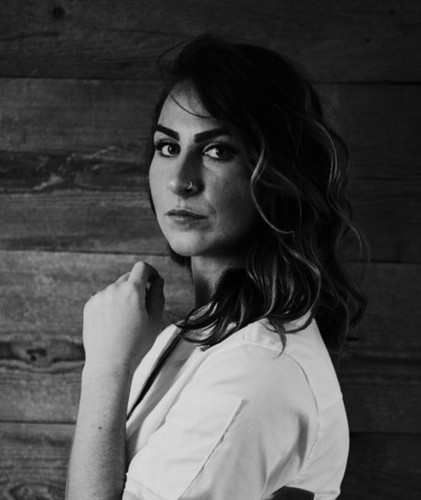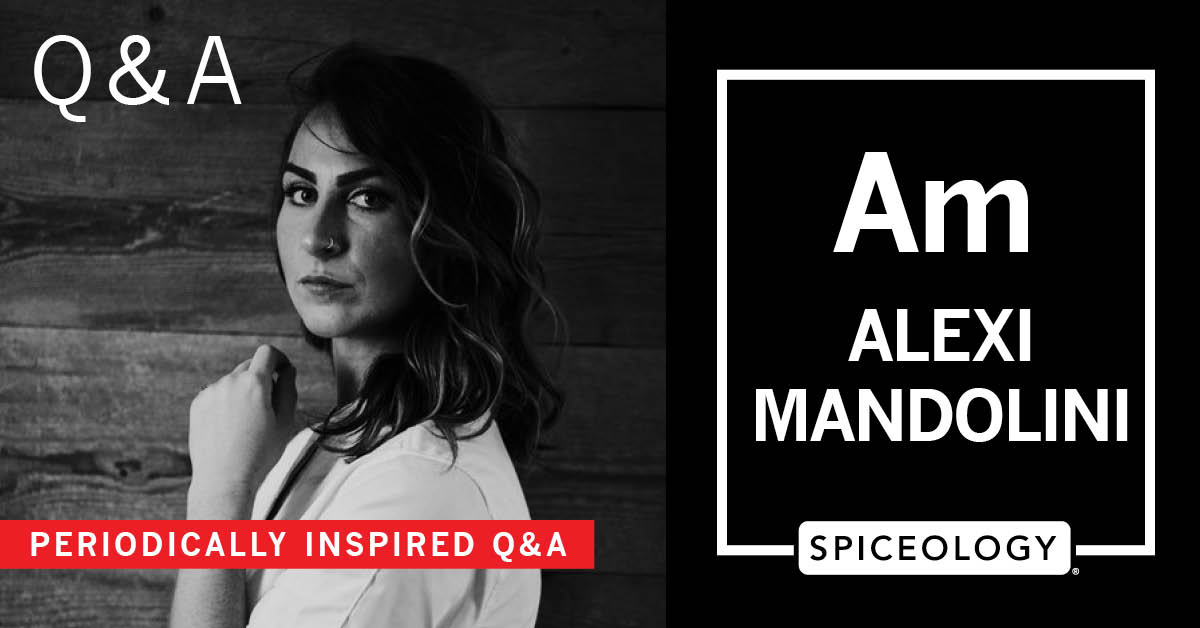
Vegan Chef Alexi Mandolini is not about to serve you a grain bowl. With Midwest roots and lush Denver locale, she opened The Easy Vegan with her partner during the thick of the pandemic and, after constantly pivoting, has come out on top. How? She’s making damn good vegan cuisine approachable to all.
A Deep-Fried Caesar, Carrot Osso Bucco, Wild Mushroom Arancini – vegetables unapologetically take front and center on Alexi’s menus. We caught up with Chef Alexi for Spiceology’s Periodically Inspired interview series that takes a deep dive into a chef’s creative side, perspectives on school and community, their favorite things, and more. Read the full interview and get to know Alexi below:
How did your restaurant The Easy Vegan come about?
“After losing my job due to the pandemic, my partner and I decided to start our own food concept.-Our friends at a local gastropub, Asbury Provisions closed down shop on Sundays and Mondays and they offered us the space to pop-up in on those days. We started out just doing takeout, and then, depending on restrictions at the time, we ran a whole bar, kitchen, and restaurant floor by ourselves for up to 25 guests.
During the summer of 2021, we dove into the mobile food scene and built a kitchen under a 10×10 tent to work at two local farmer’s markets. It was the best thing we could’ve done for our business—we developed relationships with local farmers and the community that we can’t wait to expand on when we finally open a brick-and-mortar location.
Until then, we are back at Asbury hosting monthly prix fixe, vegetable-forward dining experiences to test out new menu concepts and lean into our sweet spots–plated food and culinary-inspired cocktails.”
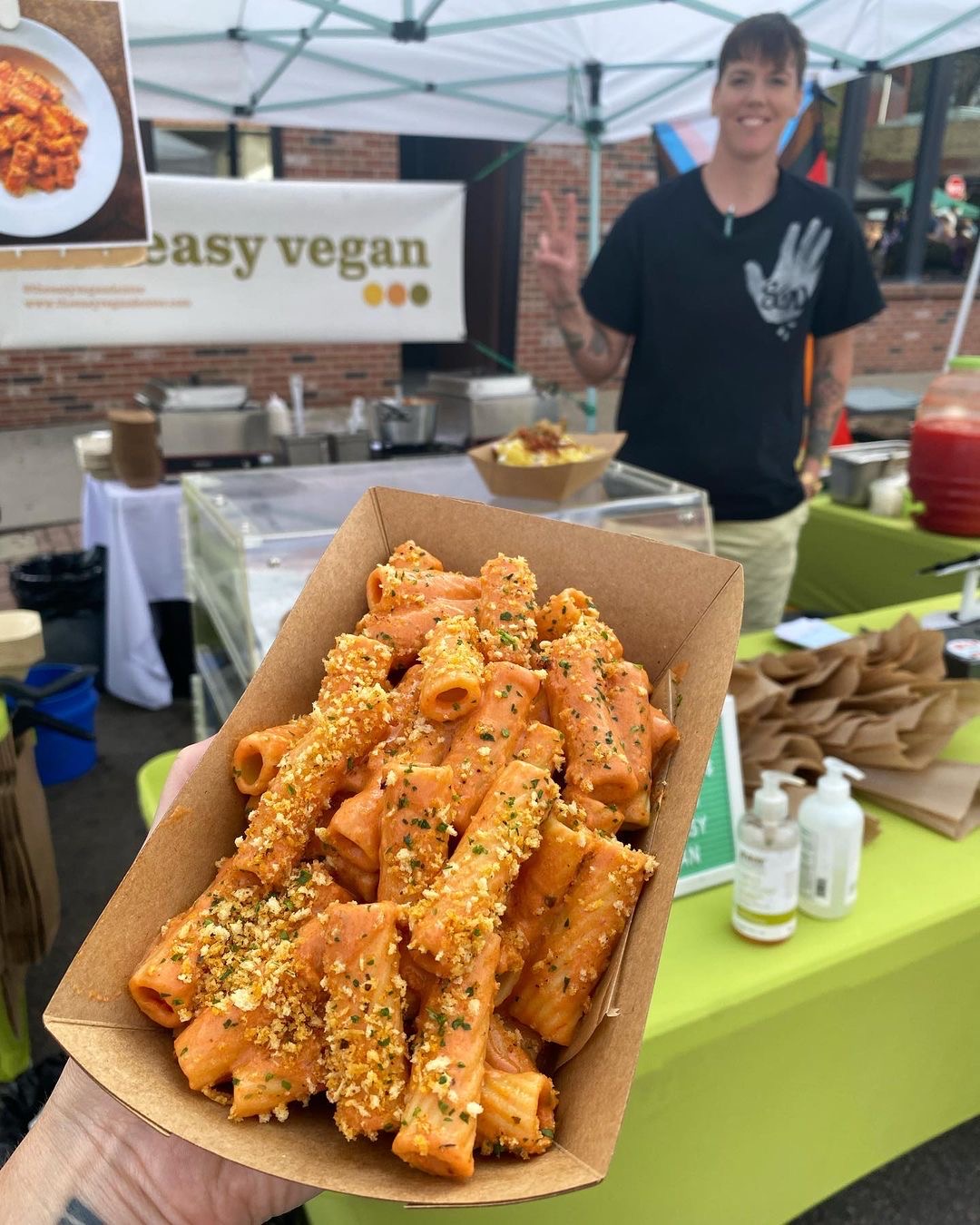
The Easy Vegan is touted as having “vegetable-forward vegan food that is not centered around health or diet culture.” You believe vegan eating is “not a limitation, but an opportunity to reimagine vegetables and their endless abilities in the kitchen and their worthiness on a plate.” Talk to me about vegan food.
“It has a lot to do with our personal views. I personally feel better when I eat a plant-based diet – even in school, I was vegetarian. I was always passionate about vegan food, and my first restaurant job was actually at a vegan restaurant in Chicago 13 years ago.
It’s more sustainable; I think a lot of us can agree that we need to cut down on meat intake and I hope people are coming to us as their gateway. I feel it’s my responsibility to source ingredients that are local, it’s better for the environment and our health. But we try to stay so far away from diet culture – we’re not nutritionists and we’re just here to celebrate vegetables.
For me, preparing great vegan food relies on the same concepts and techniques as you would preparing a cut of beef. It’s learning how to balance flavor: fat, salt, acid, etc. The only difference is that beef is coming to us marbled with fat whereas I need to find a way to introduce fat to something like a locally harvested carrot. The tricky part (and my ultimate goal) is to get you to choose the carrot instead of the beef.”
People around you, music, books, travel – where do you find inspiration when you create new dishes?
“It’s interesting because it’s changed. Pre-pandemic – I’d say traveling, and I’d be dining out. During the pandemic, I got creative, hence my book collection. I’ve been inspired by so many chefs and authors. When planning menus, books like The Chef’s Garden by Farmer Lee Jones, The Nordic Cookbook by Magnus Faviken and Six Seasons by Joshua Mcfadden all inspire me – I just can’t get enough of them.
My all-time favorite book is Burn The Place by Iliana Regan. As a queer woman working in a professional kitchen, I connect with her story and have always been so inspired by her food.”
When did you first find a love of cooking?
“My love of food came before my love of cooking. I didn’t discover my passion until after high school. My family owned a produce business in Chicago called Mandolini Company. Also, my parents are great cooks.
People think ‘oh, your family is Italian, you must have grown up with pasta’ – but I actually learned to cook from my Mom’s German side of the family. My Dad hunts and forages; I have great memories of cooking mushrooms over a campfire as a child and he helped me build a connection with food pulled right from the earth.”
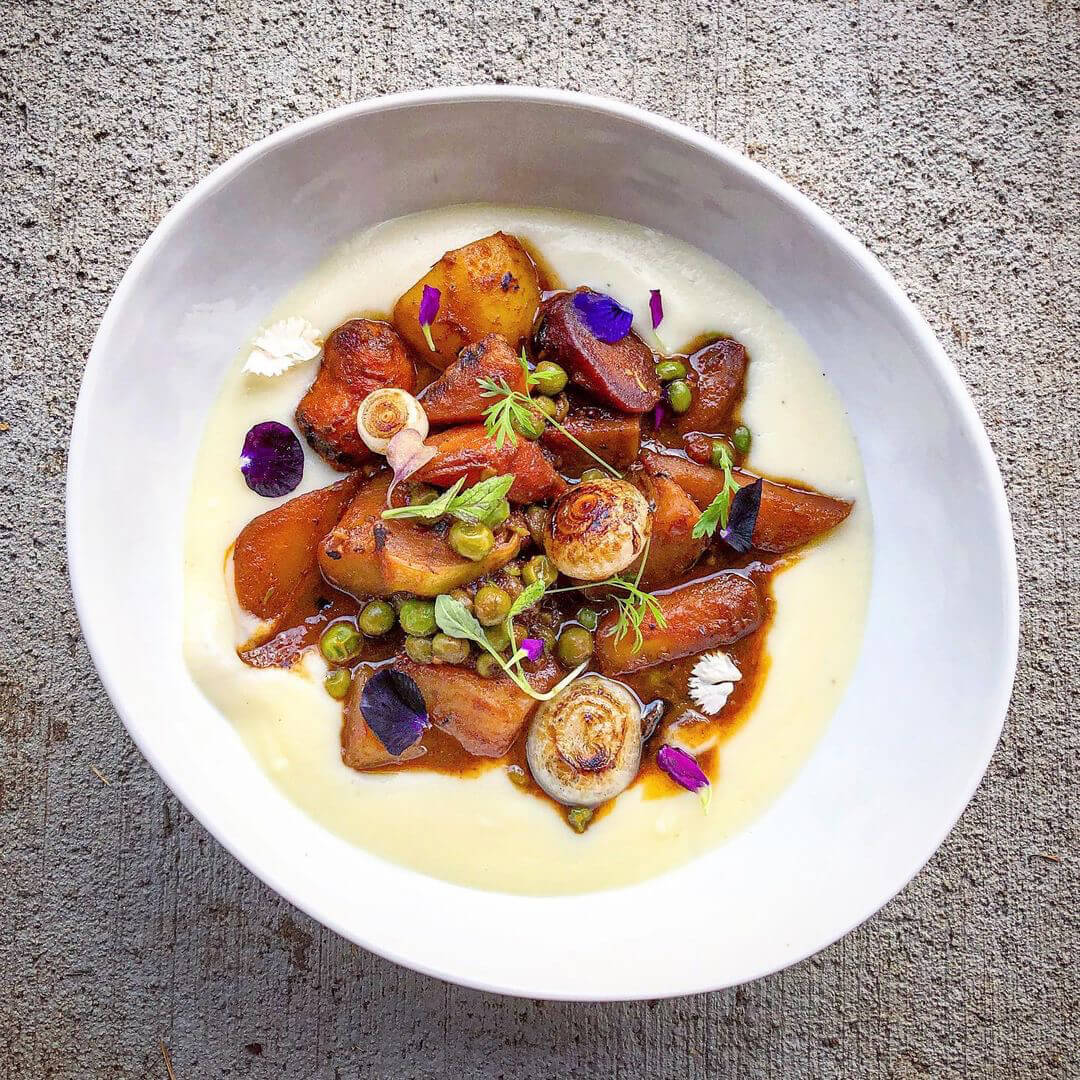
What’s your dish ideation and creation process?
“That’s something that’s evolved; I used to start at the center of the plate, but now it’s backward. Sometimes it starts with a sauce or based on a single ingredient. I’ll build a dish around something, and now elements that used to be an afterthought are now in the forefront. I also write a lot of notes and draw out all my dishes; I have like 500 yellow notepads (laughs). It’s organized chaos.”
How do you approach plating a dish? Do you consider plating an art?
“Yes, I completely think it’s an art. It’s my favorite thing, it’s the finishing touch, it’s the last thing I do. I’ll know each component before I make it, and while I’m finishing the prep, I’ll figure out the plating. That’s the fun part for me and it’s collaborative. It’s a beautiful art, and I love to look at other chefs’ dishes. It’s a good time for us to shine.”
Where are places you visit or what are things you do if you’re ever in a creative block?
“One of the beautiful things is that I’m at the farmer’s markets every weekend. What better playground? The seasonality inspires me.. It’s a beautiful thing to say that nearly everything in your dish comes from folx right around the corner.”
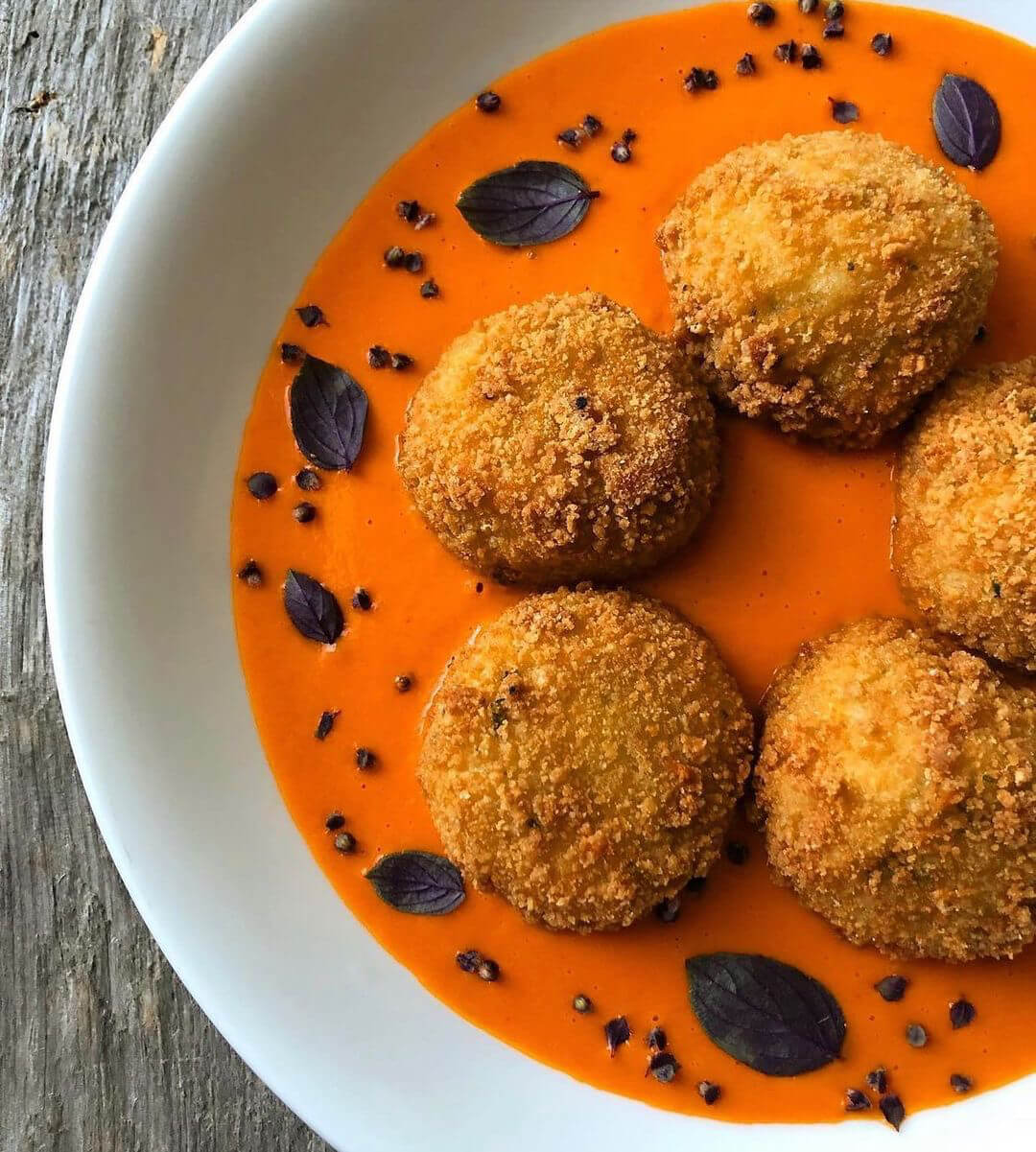
What advice would you give a chef still in culinary school?
“Stick with it. There will be many times it seems like too much. In 2010, I graduated, it was the same time that Food Network and the concept of the celebrity chef took off and a lot of people took up cooking because of all the made-for-television attention around it. It’s not that romantic. It’s hard and repetitive work and understanding that should come first.
Also, take every opportunity your mentors are throwing at you. Do an internship, build a connection with all of your classmates; I have a handful of friends from school who are now all over the nation. Build the connections – they are right in front of you.”
How do you experiment with flavor?
“It’s a fun challenge to seek out new ingredients and explore different preparations of them. I always stay curious and maintain the attitude that I don’t know everything and I’ll always be a student of this craft.”
What’s a spice you consider under-valued?
“Sumac. I love acidity in a dish, and I’m always finishing things with sherry. It brings brightness and acidity.”
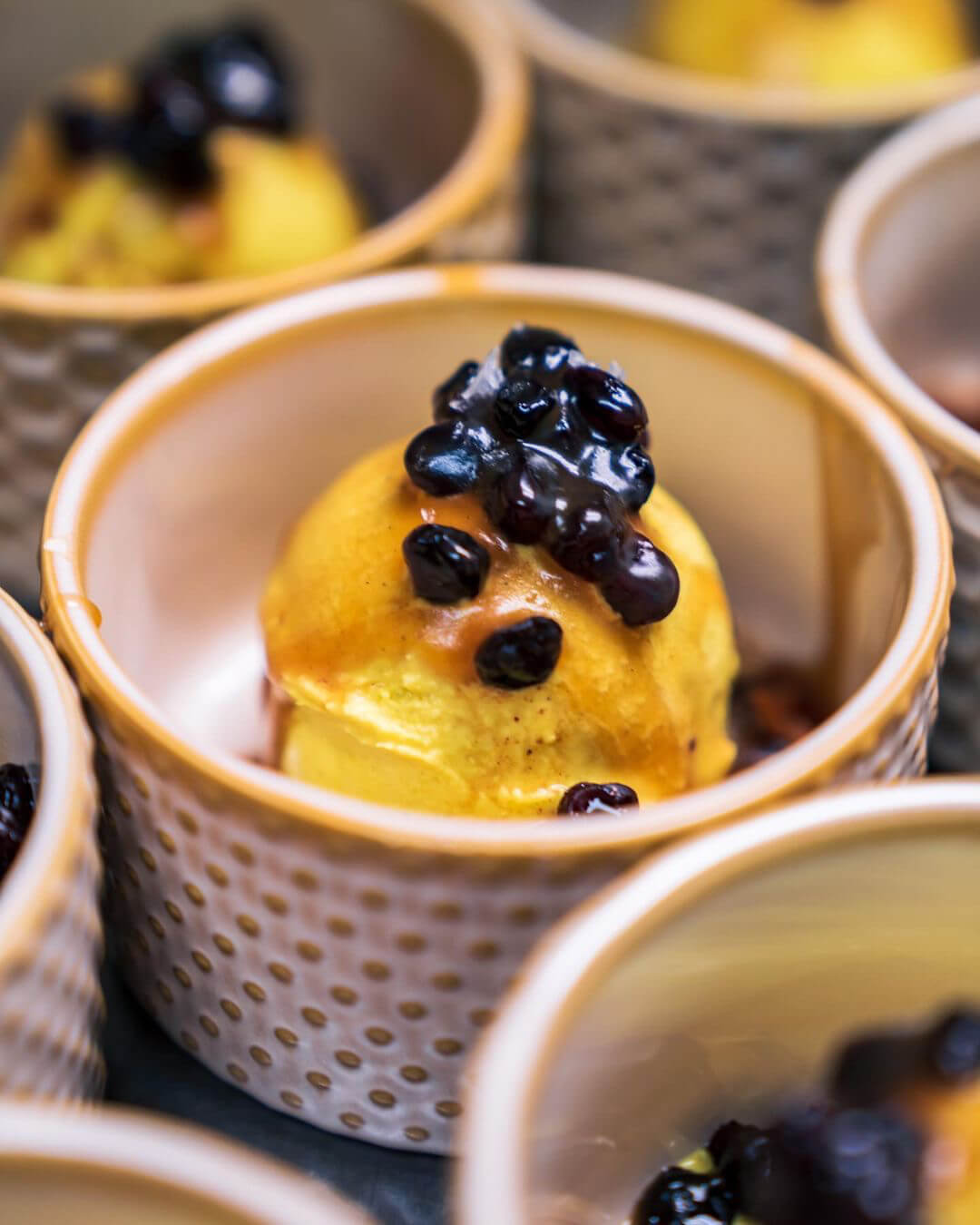
What’s one of your favorite ingredients to cook with and why?
“Kohlrabi – it’s highly underrated and versatile. You can eat it raw or cooked, and it’s an easy vegetable to grow. Also carrots because so many people haven’t tried a good carrot. The grocery store carrots don’t taste like much; the sweetness from a backyard carrot – nothing beats it.”
What do you consider a chef’s role to be in a community?
“It’s our responsibility to source locally and celebrate the farmers and the makers in our communities. I’m never going to try and do it all as a chef. I keep up on trends, but I just want to make vegan food that’s approachable. I’m from the Midwest, and there’s this concept that vegan food is just all healthy grain bowls, and there’s a stigma that we need meat for every single meal. We don’t and vegan food can be amazing.”
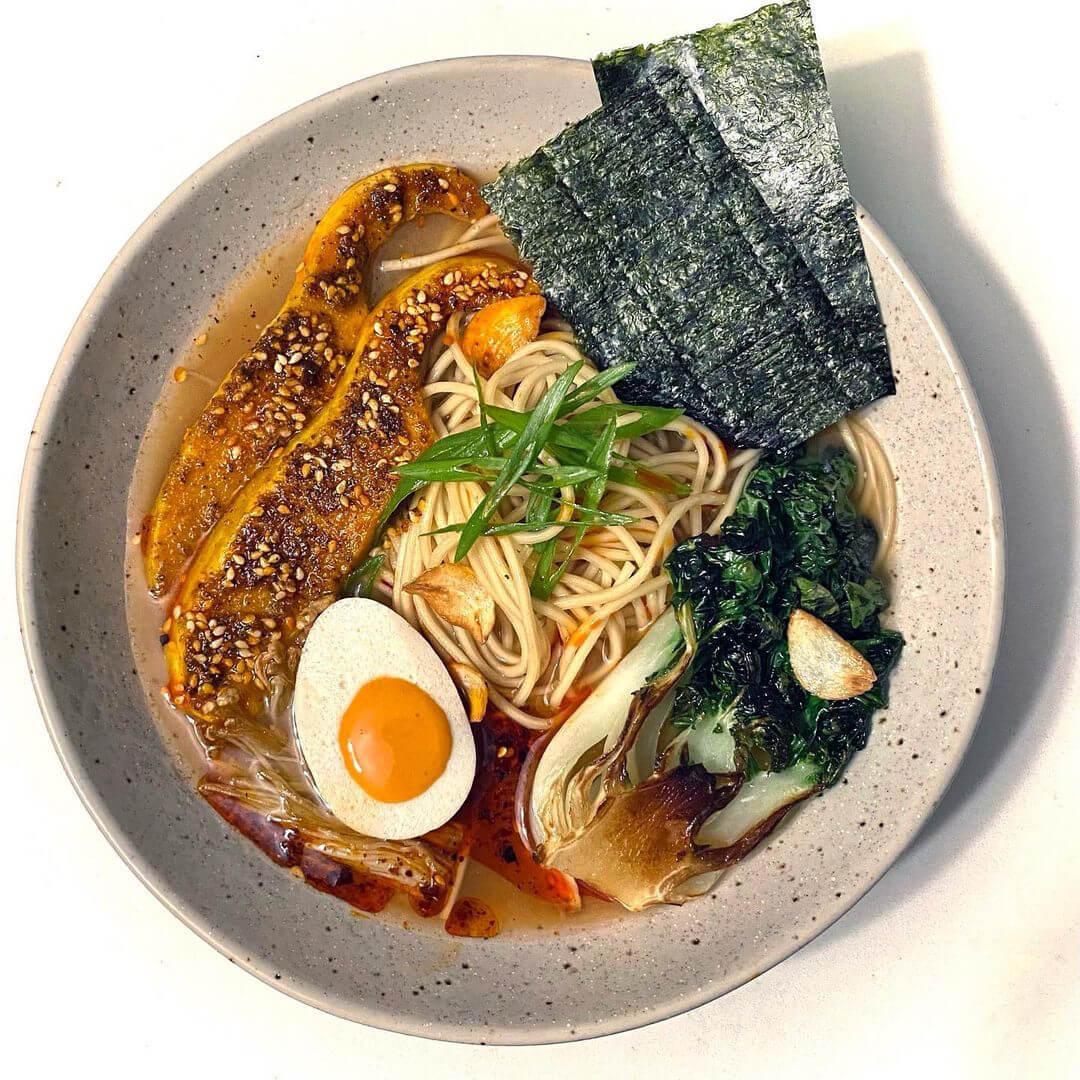
Favorite dish to cook for yourself?
“It’s always going to be noodles, like ramen. even if I’m in a shit mood, I’m making a bowl of ramen. I’m clearing out the fridge, using up whatever I have, and I find comfort in that.”
Favorite dish to cook for friends and family?
“A dish I’d like to cook more of is one my mom makes. We had stuffed artichokes growing up, and it’s such a major food memory of mine. I don’t get a lot of time to cook for friends, but when I do it’s been a lot of dishes my mom cooked for me growing up. There’s a sense of love and care.”
What are your breakfast, lunch and dinner restaurant recs when in Denver?
“For breakfast, I love Lucile’s–a local Creole kitchen. For lunch, always curry or samosas from Chef Dave Hadley’s Samosa Shop. Some of our favorite vegan food can be found at non-vegan restaurants–for dinner we love the vegan options at Hop Alley and the Omakase from Uchi.”
Follow Chef Alexi and all things The Easy Vegan over on Instagram.
Photo credit: Megan Cody @megan_irl


